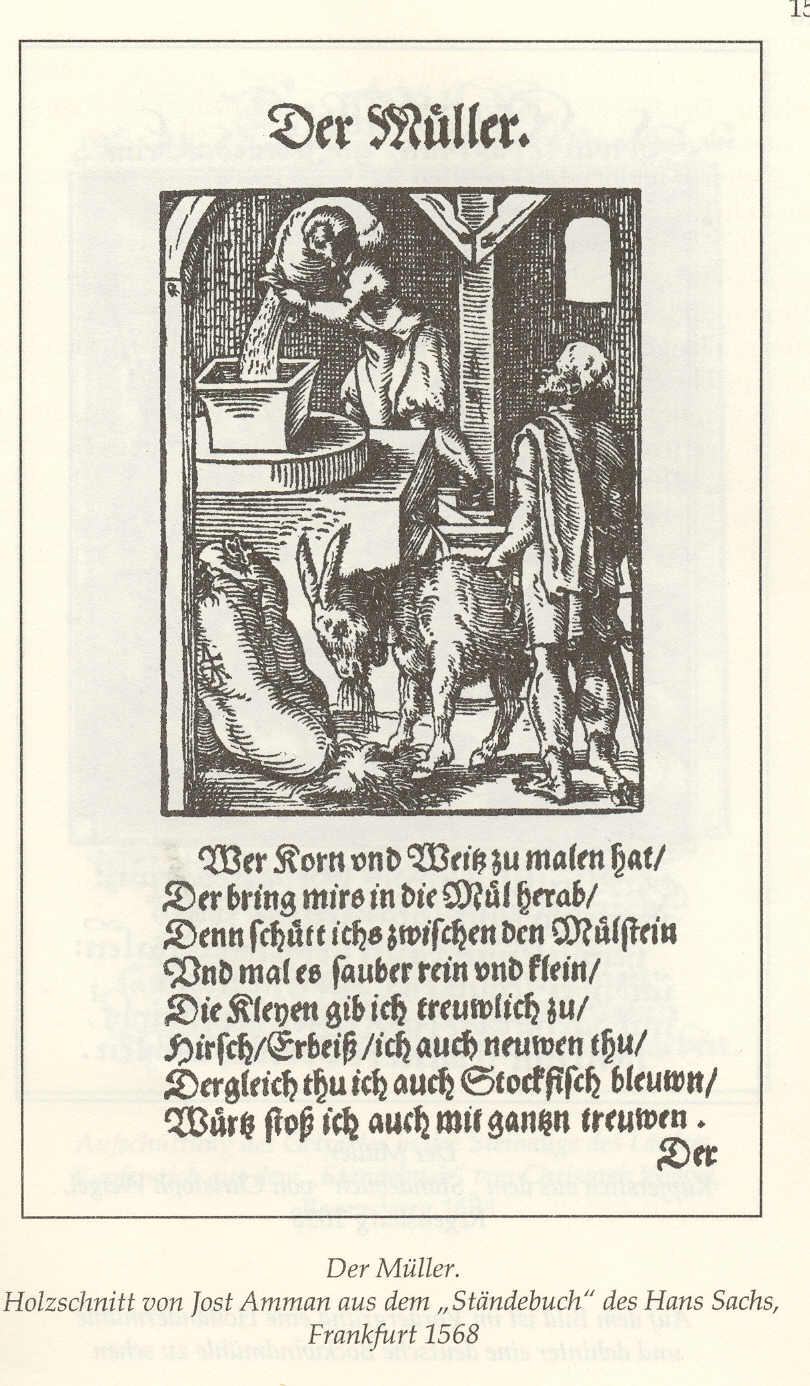
Millers in West Prussia

Millers were important in the 17th century country economy. The major crops were grains (usually rye, barley, and wheat). Some of the grain was used to pay rent on property (so called grain rent). Some was sold. But a lot of grain produced by the peasants and the estates was made into various grades of flour. Millers usually took for their pay a small share of the grain provided.
A Miller learned his trade usually from his father. However, a young man might also apprentice to a miller or marry a miller's daughter (especially when the miller did not have a son). A miller, of course, needed a mill. So he might contract himself out to a
manorial estate or purchase the inheritable privilege of using a Polish noble's mill. In the former case, there might be an initial payment plus a share of the grain processed by the miller. In the latter case, there might be a bigger initial cost as well as annual payments. So getting into the business required skills, equipment, and perhaps money.Although a profession which could lead to a better life than farming, the miller was often viewed as not giving a fair deal to the peasants and so resented. Click here for more about who was the
top dog in the village; that is, village politics.
Please send any queries to Bill Remus at
October 8, 2006